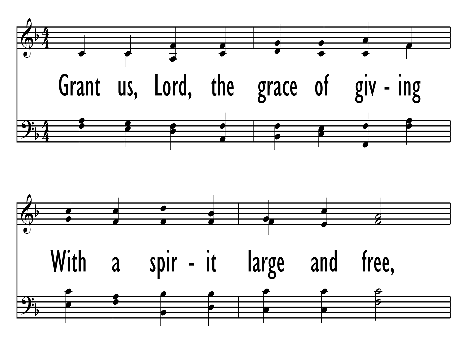- |
User Links
Call Jehovah Thy Salvation

Call Jehovah thy salvation
Author: James Montgomery (1822)Published in 217 hymnals
Printable scores: PDF, MusicXMLAudio files: MIDI
Representative Text
1. Call Jehovah your salvation,
Rest beneath th’ Almighty’s shade,
In his secret habitation
Dwell, nor ever be dismayed:
There no tumult can alarm you;
You shall dread no hidden snare;
Guile nor violence can harm you
In eternal safeguard there.
2. Only with your eye the anguish
Of the wicked you shall see,
When by slow disease they languish,
When they perish suddenly:
Yea, though winds and waves be swelling,
God, your hope, shall bear through all;
Plague shall not come near your dwelling,
Nor shall evil you befall.
3. He shall charge his angel legions
Watch and ward o’er you to keep,
Though you walk through hostile regions,
Though in desert wilds you sleep;
On the lion vainly roaring,
On his young, your foot shall tread,
And the dragon’s den exploring,
You shall bruise the serpent’s head.
4. Since, with pure and firm affection,
You on God have set your love,
With the wings of his protection,
He will shield you from above:
You shall call on him in trouble,
He will hearken, he will save,
Here for grief reward you double,
Crown with life beyond the grave.
Source: Hymns and Devotions for Daily Worship #92b
Author: James Montgomery
 James Montgomery (b. Irvine, Ayrshire, Scotland, 1771; d. Sheffield, Yorkshire, England, 1854), the son of Moravian parents who died on a West Indies mission field while he was in boarding school, Montgomery inherited a strong religious bent, a passion for missions, and an independent mind. He was editor of the Sheffield Iris (1796-1827), a newspaper that sometimes espoused radical causes. Montgomery was imprisoned briefly when he printed a song that celebrated the fall of the Bastille and again when he described a riot in Sheffield that reflected unfavorably on a military commander. He also protested against slavery, the lot of boy chimney sweeps, and lotteries. Associated with Christians of various persuasions, Montgomery supported missio… Go to person page >
James Montgomery (b. Irvine, Ayrshire, Scotland, 1771; d. Sheffield, Yorkshire, England, 1854), the son of Moravian parents who died on a West Indies mission field while he was in boarding school, Montgomery inherited a strong religious bent, a passion for missions, and an independent mind. He was editor of the Sheffield Iris (1796-1827), a newspaper that sometimes espoused radical causes. Montgomery was imprisoned briefly when he printed a song that celebrated the fall of the Bastille and again when he described a riot in Sheffield that reflected unfavorably on a military commander. He also protested against slavery, the lot of boy chimney sweeps, and lotteries. Associated with Christians of various persuasions, Montgomery supported missio… Go to person page >Text Information
| First Line: | Call Jehovah thy salvation |
| Title: | Call Jehovah Thy Salvation |
| Author: | James Montgomery (1822) |
| Meter: | 8.7.8.7 D |
| Language: | English |
| Copyright: | Public Domain |
Notes
Call Jehovah thy salvation. J. Montgomery. [Psalms xci.] The manuscript of this version of Psalms xci. is not preserved with the Montgomery Manuscript. The paraphrase first appeared in Montgomery's Songs of Zion, 1822; in 5 stanzas of 8 lines, and again in his Original Hymns, 1853, No. 145. As a hymn for congregational use it is generally given in an abbreviated form, both in the older and in modern collections, as in Kennedy, 1863; the Wesleyan Hymn Book, 1875; and others. Original text as above. In America it has attained to a good position, and is sometimes found as, "Call the Lord, thy sure salvation." From this hymn also, the hymn, "God shall charge His angel legions," is taken. It is composed of stanzas iv. and v., and was given in the American Prayer Book Collection, 1826, and later hymn-books.
--John Julian, Dictionary of Hymnology (1907)


 My Starred Hymns
My Starred Hymns







